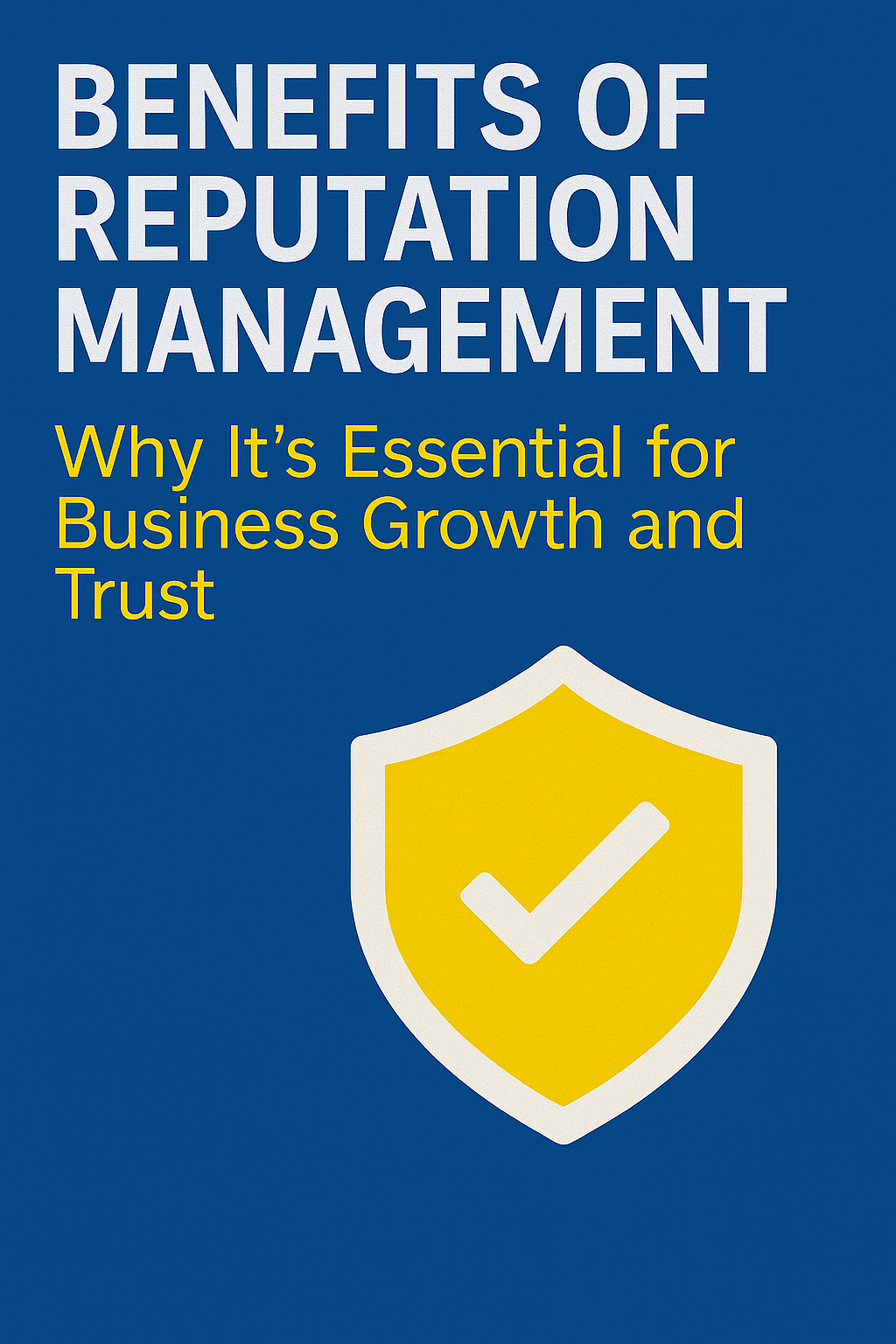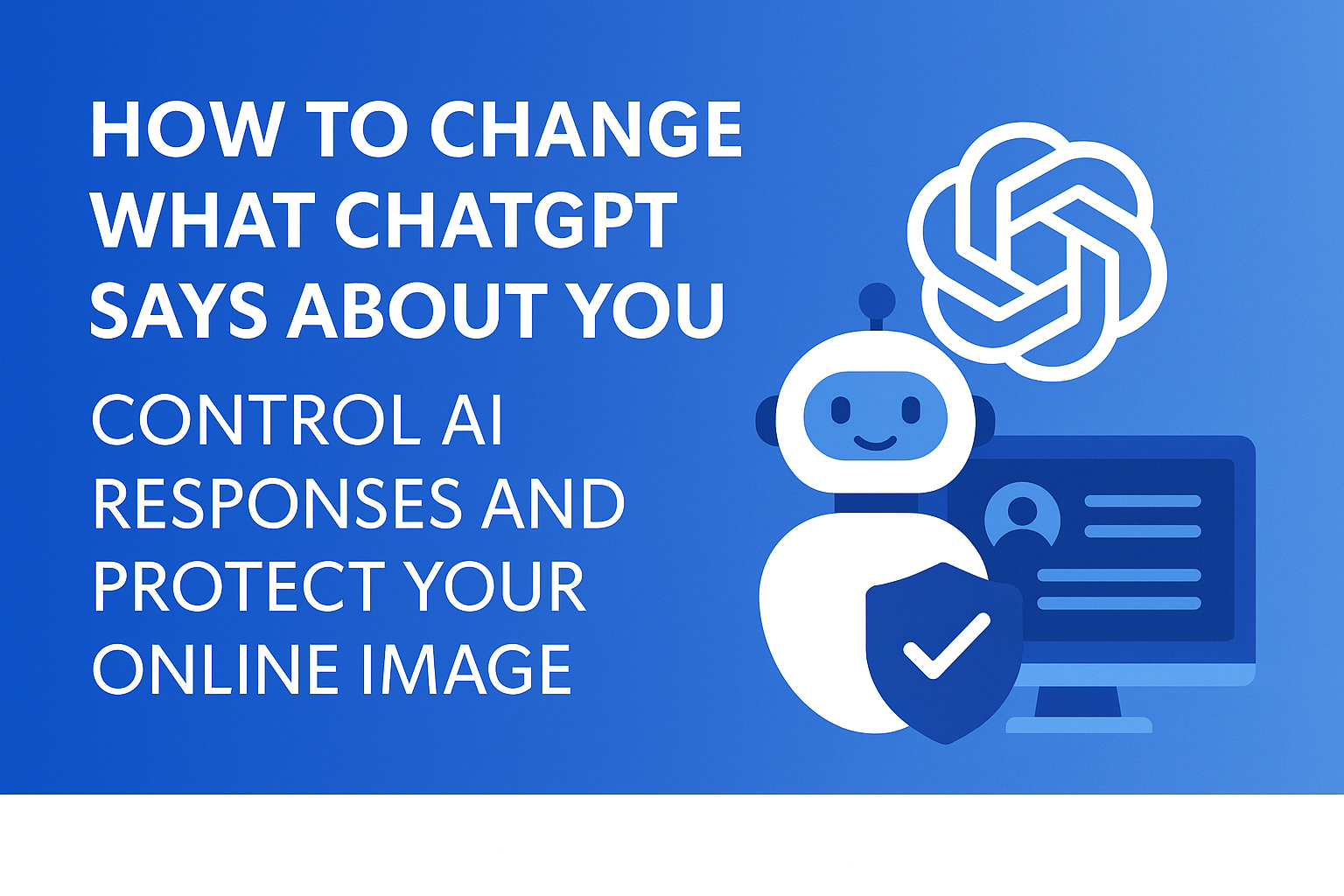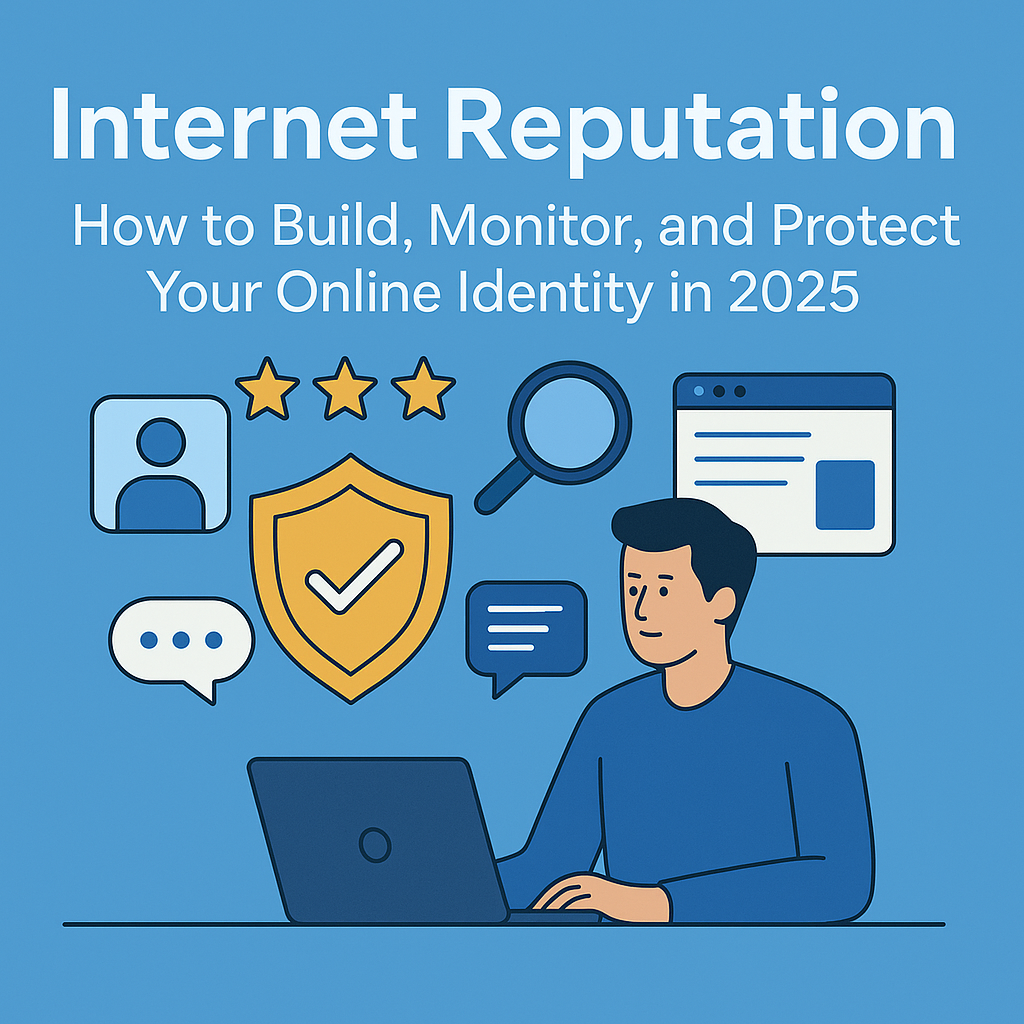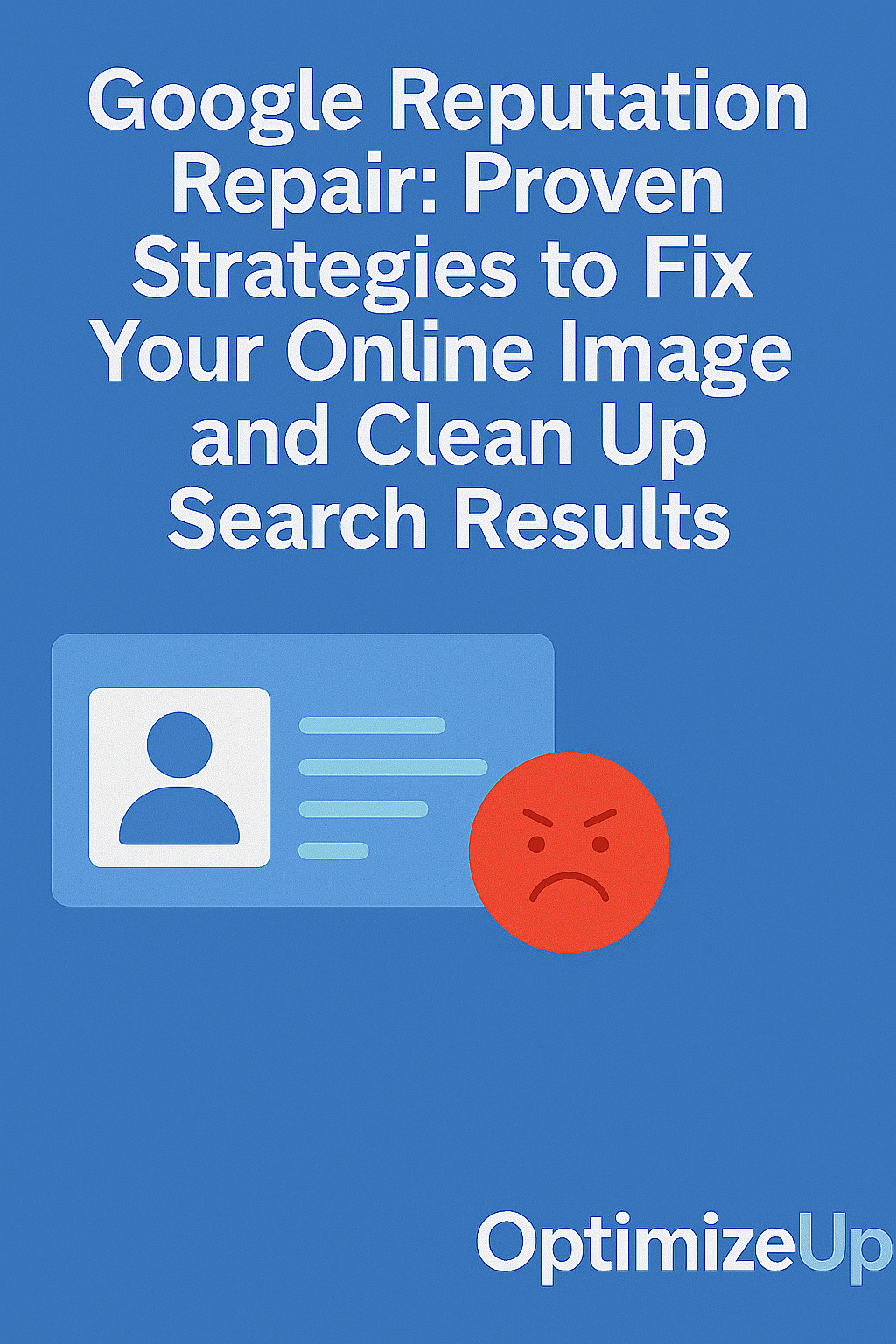What is Reputation Management?
Reputation management involves actively monitoring, influencing, and maintaining the public perception of your brand online. It covers managing customer feedback, responding proactively to negative commentary, and strategically promoting positive content to shape a favorable public image.
Comprehensive Benefits of Reputation Management
1. Enhanced Trust and Credibility
Trust is foundational to customer relationships. Effective reputation management demonstrates transparency, accountability, and reliability:
- Promptly address customer inquiries and complaints.
- Highlight positive customer testimonials and reviews.
- Proactively manage negative feedback by offering solutions and transparency.
2. Improved Search Engine Rankings
Your online reputation significantly impacts search engine optimization (SEO):
- Positive online reviews enhance local SEO visibility.
- Consistent, high-quality content creation improves organic search results.
- Suppression techniques reduce the impact of negative content in search results.
3. Increased Customer Acquisition and Retention
A robust reputation helps attract new customers and retains existing ones:
- Approximately 93% of consumers check online reviews before purchasing (BrightLocal).
- Brands with strong reputations see higher customer loyalty and repeat business.
- Positive reputations encourage customer referrals, amplifying growth.
4. Effective Crisis Management
Proactive reputation management provides preparedness and resilience during crises:
- Swift responses mitigate negative publicity.
- Established crisis management protocols allow organized responses.
- Minimizes long-term damage to the brand image.
5. Attracting and Retaining Top Talent
Your brand’s reputation significantly affects employer branding:
- A strong reputation attracts higher-quality job candidates.
- 69% of job seekers would refuse employment from companies with poor reputations (Glassdoor).
- Enhanced morale and reduced turnover among existing employees.
6. Amplified Social Proof
Social proof is powerful in shaping purchasing decisions:
- High ratings and positive reviews on platforms like Yelp and Google.
- Leveraging customer testimonials to enhance brand credibility.
- Increased conversion rates driven by user-generated content.
7. Strengthened Public Relations
An active reputation management strategy supports robust PR initiatives:
- Increased opportunities for positive media coverage.
- Enhanced credibility with journalists and influencers.
- Better control of the narrative around your brand.
8. Greater Competitive Advantage
Brands that manage their reputations effectively stand out in crowded markets:
- Differentiation through customer trust and reliability.
- Higher market share from improved customer perceptions.
- Opportunities to leverage reputation as a unique selling proposition.
9. Stronger Community and Customer Engagement
Effective reputation management encourages meaningful community interactions:
- Higher customer engagement rates through personalized communication.
- Strengthened relationships through proactive customer support.
- Increased community participation and brand advocacy.
10. Improved Profitability and Business Sustainability
A strong reputation positively influences long-term financial performance:
- Increased sales from higher conversion and retention rates.
- Lower marketing and customer acquisition costs.
- Sustained business growth through continual trust-building.
11. Enhanced Regulatory Compliance
Managing your reputation effectively supports compliance with regulatory requirements:
- Builds positive relationships with regulatory bodies.
- Reduces risk of penalties and negative publicity associated with compliance breaches.
12. Facilitates Strategic Partnerships
A favorable reputation simplifies forming valuable business partnerships:
- Attracts trustworthy partners.
- Enhances collaborative opportunities through established brand credibility.
13. Drives Brand Equity and Valuation
Strong reputations contribute significantly to overall brand equity:
- Boosts company valuation for potential investors or acquisitions.
- Enhances market positioning and competitive strength.
14. Supports Long-term Strategic Planning
Effective reputation management aligns with broader strategic business goals:
- Provides insights into consumer perceptions.
- Facilitates informed decision-making for long-term initiatives.
15. Protects Against Brand Hijacking
Proactive monitoring helps identify and mitigate brand misuse:
- Early detection of false representations.
- Swift responses to impersonations and fraudulent activities.
Advanced Strategies for Reputation Management
Reputation Monitoring Tools
Utilize advanced tools like Brandwatch, Hootsuite, and Google Alerts to maintain real-time awareness of your online presence.
Content Strategy and SEO Integration
Implement SEO-friendly content strategies to proactively control brand narratives and influence organic search rankings positively.
Leveraging Influencer and Brand Partnerships
Collaborate with reputable influencers and partners to bolster credibility and reach wider, targeted audiences.
Proactive Customer Support
Deploy proactive customer service strategies to turn potential negatives into brand-positive experiences.
Reputation Management Analytics
Employ analytics to track reputation metrics systematically, facilitating continuous improvement.
Best Practices for Effective Reputation Management
- Consistently audit your brand’s online presence.
- Maintain active and authentic social media engagements.
- Regularly solicit feedback and encourage positive reviews.
- Communicate transparently and authentically.
- Quickly and professionally handle negative situations.
Optimized Up Solutions
Optimized Up provides specialized solutions to ensure your business’s reputation remains stellar:
- Comprehensive online reputation audits.
- Customized strategies for managing and mitigating negative content.
- Strategic development of positive brand narratives.
- Ongoing reputation management support and analytics.
Contact Optimized Up to learn how we can protect and enhance your business’s online reputation.
Frequently Asked Questions (FAQs)
It is the ongoing process of monitoring and shaping the public perception of your business or personal brand online.
It safeguards and enhances brand image, increases customer trust, improves search visibility, and supports sustainable growth.
Initial improvements can appear within weeks, but lasting reputation enhancement typically requires ongoing efforts over several months.
Only reviews violating platform guidelines can typically be removed. Effective management involves responding professionally and strategically.
Tools like Google Alerts, Brand24, Mention, BrightLocal, and Hootsuite are commonly used.
Yes, reputation management is essential for small businesses as it helps attract local customers, builds credibility, and promotes sustained growth.
Utilize reputation management tools like Google Alerts, Mention, and Brandwatch to monitor online mentions and reviews effectively.
Costs vary depending on the scope and scale of services needed but investing in professional reputation management often provides significant long-term ROI.





